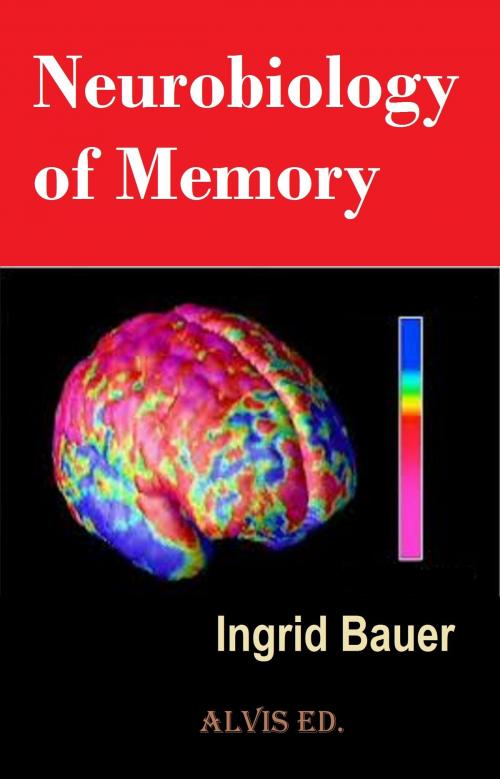Neurobiology of Memory
Nonfiction, Health & Well Being, Psychology, Neuropsychology, Science & Nature, Science, Biological Sciences| Author: | Ingrid Bauer | ISBN: | 9781476160641 |
| Publisher: | ALVIS International Editions | Publication: | June 26, 2012 |
| Imprint: | Smashwords Edition | Language: | English |
| Author: | Ingrid Bauer |
| ISBN: | 9781476160641 |
| Publisher: | ALVIS International Editions |
| Publication: | June 26, 2012 |
| Imprint: | Smashwords Edition |
| Language: | English |
Memory is the brain's ability to keep track of past experience and make it reappear in consciousness. Memory is a complex process that involves three phases: learning, information storage, return (evocation and recognition). These phenomena are not precise and controlled by a specialized region of the brain, but develop together at the nerve centers polyvalent (hippocampus, hypothalamus, and mammillary bodies) and nerve fibers that connect them. In general, we distinguish the short-term memory, which does not last longer than several minutes, from that in the long term. For live in the environment, man, like any animal, must be able to be able to recognize the situation between two alternatives to him optimal, such as distinguish the prey from predator. In animals with advanced parental care such as those of higher mammals, the mother teaches the children to the knowledge of food sources and territory, in the natural environment very hostile. This ability to adapt derives from the fact that the experience can change the nervous system and thus the behavior of the animal. In this concept of adaptability is the meaning of the terms contained in learning and memory. This is determined by well-defined biochemical mechanisms that researchers, thanks to new research tools provided by modern technology are successfully identified, paving the way for new insights into the mechanisms that regulate memory and new prospects therapeutic intervention
Memory is the brain's ability to keep track of past experience and make it reappear in consciousness. Memory is a complex process that involves three phases: learning, information storage, return (evocation and recognition). These phenomena are not precise and controlled by a specialized region of the brain, but develop together at the nerve centers polyvalent (hippocampus, hypothalamus, and mammillary bodies) and nerve fibers that connect them. In general, we distinguish the short-term memory, which does not last longer than several minutes, from that in the long term. For live in the environment, man, like any animal, must be able to be able to recognize the situation between two alternatives to him optimal, such as distinguish the prey from predator. In animals with advanced parental care such as those of higher mammals, the mother teaches the children to the knowledge of food sources and territory, in the natural environment very hostile. This ability to adapt derives from the fact that the experience can change the nervous system and thus the behavior of the animal. In this concept of adaptability is the meaning of the terms contained in learning and memory. This is determined by well-defined biochemical mechanisms that researchers, thanks to new research tools provided by modern technology are successfully identified, paving the way for new insights into the mechanisms that regulate memory and new prospects therapeutic intervention















